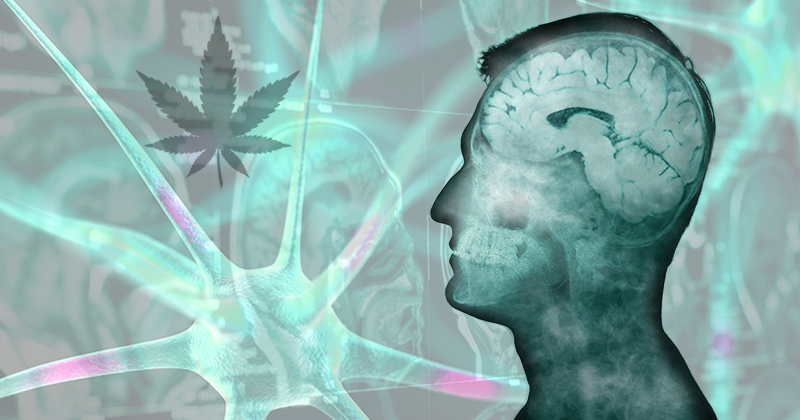Cannabis for dementia: Is the green plant a suitable treatment for senior citizens?
Studies show that excitotoxicity and inflammation inside the brain (two common occurrences amongst dementia sufferers) may be disrupted by CB1/CB2 agonists.
Cannabis is a plant with many medical uses, one of which could be dementia. Various lines of evidence have highlighted the role that cannabinoids play in treating dementia.
Although additional human trials are required to confirm the efficacy of cannabis for dementia, the science behind cannabis for dementia looks promising. Although dementia is currently incurable, scientists have discovered that chemical components of the cannabis plant may have the potential to improve memory function and brain cells in mice.
How is the brain affected by cannabis?

Every human brain has an endocannabinoid system woven into its inner workings.
This system is targeted by the cannabis plant, once the plant is consumed in some form.
Comprised of CB1 and CB2 receptors, the endocannabinoid system plays a major role in managing stress response, appetite, and memory.
Naturally, the brain produces endocannabinoids. These endocannabinoids have a direct effect on CB1 and CB2 receptors.
THC binds to the CB1 receptor, while CBD binds to both and is believed to hinder or stop their activity altogether.
Cannabis for dementia: Is it a cure?

While it may not cure dementia completely, cannabis could make a significant positive difference in a patient’s life.
Alzheimer’s disease destroys the brain. It is one of the main causes of dementia.
The hippocampus is a part of the brain that is susceptible to the many symptoms associated with the disease, such as learning difficulties and memory loss. Contained within the hippocampus is the CB1 receptor.
The evidence to prove that the microglia (this part of the brain contains the CB2 receptor) contributes to the development of Alzheimer’s disease and dementia is stacking up.
Many studies have also revealed an increase in CB2 receptors inside the brain amongst people diagnosed with the debilitating disease.
What does this tell us? Well, cannabinoids are closely linked to disease pathology, what with certain compounds possessing therapeutic potential in neurodegenerative diseases.
For example, studies show that excitotoxicity and inflammation inside the brain (two common occurrences amongst dementia sufferers) may be disrupted by CB1/CB2 agonists.
Furthermore, CB1 receptors have the potential to minimize dyskinesia in Parkinson’s Disease (PD) and regulators of endocannabinoid signaling may prevent hyperactivity in Huntington’s Disease (HD).
Dementia is a common feature in HD and PD.
Replacing alcohol with cannabis may prevent dementia

Alcohol puts consumers at a much higher risk of developing dementia than those who don’t drink.
This is according to a study published by the Centre for Addiction and Mental Health.
Researchers noted that among all of the preventable risk factors for dementia, alcohol was the most easily preventable.
If the tens of thousands of people who are diagnosed with dementia every year replaced alcohol with cannabis, they could minimize their risks of experiencing memory loss in the first place.
“The findings indicate that heavy drinking and alcohol use disorders are the most important risk factors for dementia, and especially important for those types of dementia which start before age 65, and which lead to premature deaths,” said the co-author of the study, Jürgen Rehm.
“Alcohol-induced brain damage and dementia are preventable, and known-effective preventive and policy measures can make a dent in premature dementia deaths,” Rehm added.








